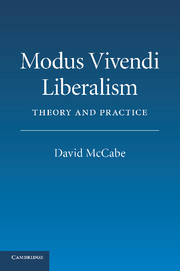4 - Liberal autonomy: the particularist case
Published online by Cambridge University Press: 06 July 2010
Summary
RAZ AND PARTICULARIST LIBERALISM
Even if the universal value of liberal autonomy cannot be established with the conclusiveness needed to overcome the critics' objections, there remains a second route for defending liberalism via autonomy. Here the argument proceeds not by appealing to autonomy's value for persons everywhere, but by stressing its special importance within existing liberal societies. This particularist approach does not claim that the liberal state is the ideal model of political association for all times and places, but instead defends it as appropriate given the particular social facts of certain human communities. Will Kymlicka's influential defense of minority rights in liberal states draws to some extent on such particularist claims, as does Michael Oakeshott's defense of liberalism, with its emphasis on human conduct as always situated within a world of meanings created by inescapably social agents. Here, however, I shall concentrate on the most highly articulated and, I believe, most powerful version of the particularist case in liberal theory, that advanced by Joseph Raz. If the particularist case as Raz sets it forth cannot survive the critic's objections, this gives strong confidence for thinking that no such argument can do so.
Raz's argument is especially intriguing in several respects. First, while various theorists defend liberalism by appealing to autonomy, or to value pluralism, or to the political culture of liberal democracies, for Raz these diverse considerations figure not as competing ways of defending liberal regimes but as complementary ideas that combine to make the most powerful case.
- Type
- Chapter
- Information
- Modus Vivendi LiberalismTheory and Practice, pp. 54 - 76Publisher: Cambridge University PressPrint publication year: 2010

